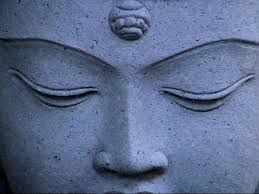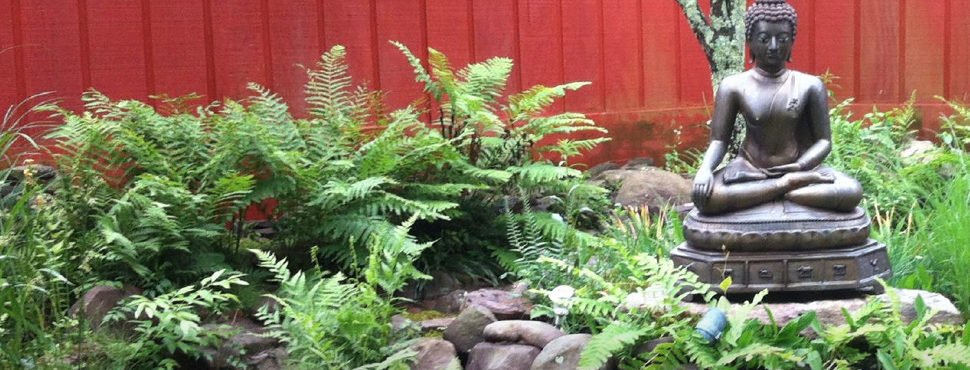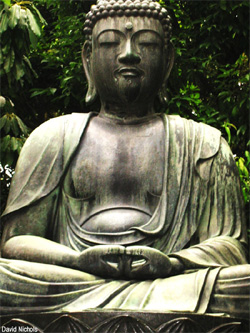There are many metta or loving-friendliness meditations to be found on the web. Here is one from the Meditation Circle’s Resources page, adapted from a metta meditation taught by Bhante Gunaratana at the Bhavana Society Therevadan Forest Monastery near Wardensville, W.Va. Metta meditations can be a heartening and expansive way to begin or end a meditation session.
◊
May I be well, happy and peaceful. May no harm come to me, may difficulties not last long, may I have a calm, centered mind. May I have patience, insight, courage and compassion in meeting and overcoming the inevitable challenges, difficulties and failures in life.
May my parents be well happy and peaceful. May no harm come to them, may difficulties not last long, may they have calm, centered minds. May they have patience, insight, courage and compassion in meeting and overcoming the inevitable challenges, difficulties and failures in life.
May my teachers be well happy and peaceful. May no harm come to them, may difficulties not last long, may they have calm, centered minds. May they have patience, insight, courage and compassion in meeting and overcoming the inevitable challenges, difficulties and failures in life.
May family members and relatives be well happy and peaceful. May no harm come to them, may difficulties not last long, may they have calm, centered minds. May they have patience, insight, courage and compassion in meeting and overcoming the inevitable challenges, difficulties and failures in life.
May friends and acquaintances be well happy and peaceful. May no harm come to them, may difficulties not last long, may they have calm, centered minds. May they have patience, insight, courage and compassion in meeting and overcoming the inevitable challenges, difficulties and failures in life.
May my enemies and those with whom I have trouble communicating be well happy and peaceful. May no harm come to them, may difficulties not last long, may they have calm, centered minds. May they have patience, insight, courage and compassion in meeting and overcoming the inevitable challenges, difficulties and failures in life.
May indifferent persons be well happy and peaceful. May no harm come to them, may difficulties not last long, may they have calm, centered minds. May they have patience, insight, courage and compassion in meeting and overcoming the inevitable challenges, difficulties and failures in life.
May all beings, with form and without form, visible and invisible, near and far, born or coming to birth, from the highest realms of existence to the lowest, be well happy and peaceful. May no harm come to them, may difficulties not last long, may they have calm, centered minds. May they have patience, insight, courage and compassion in meeting and overcoming the inevitable challenges, difficulties and failures in life.















